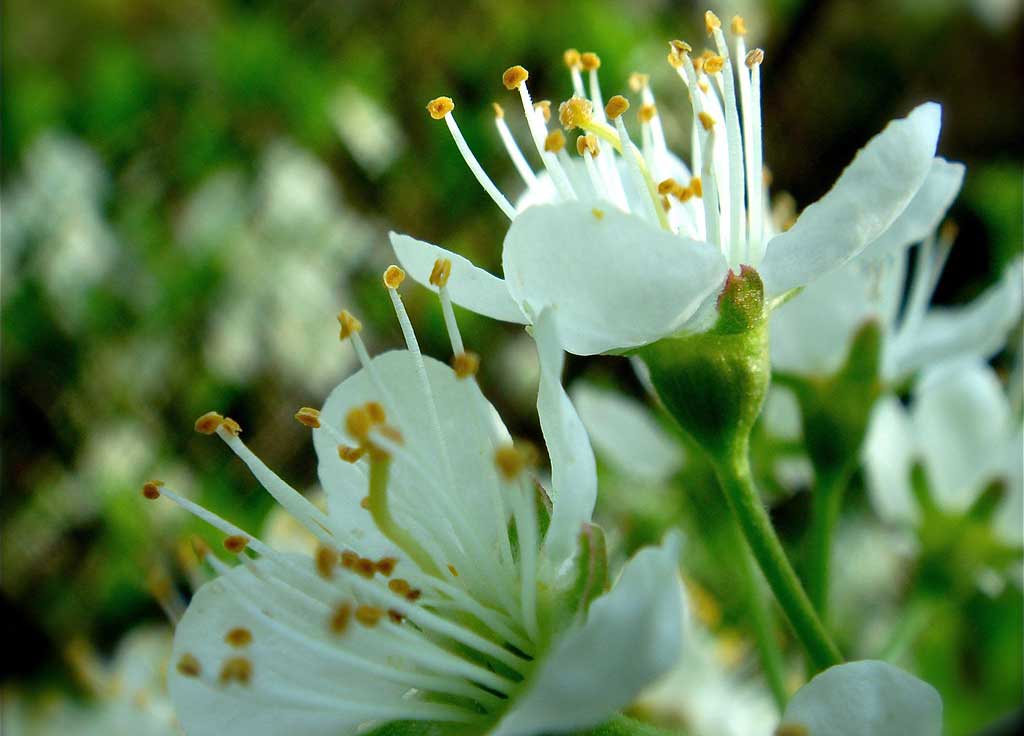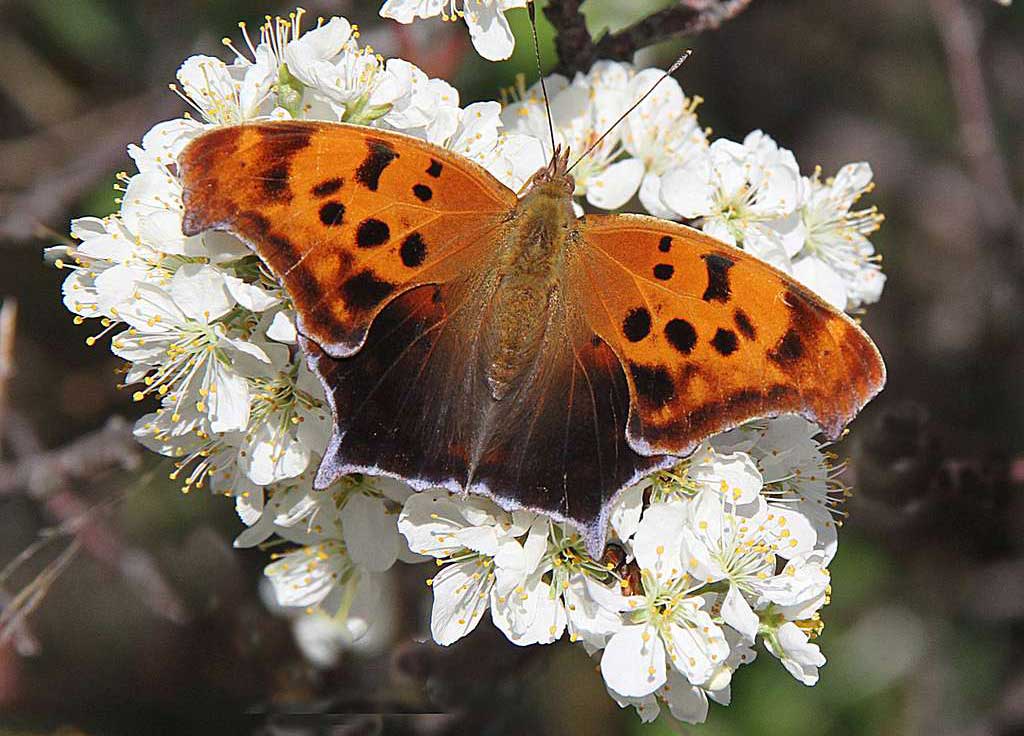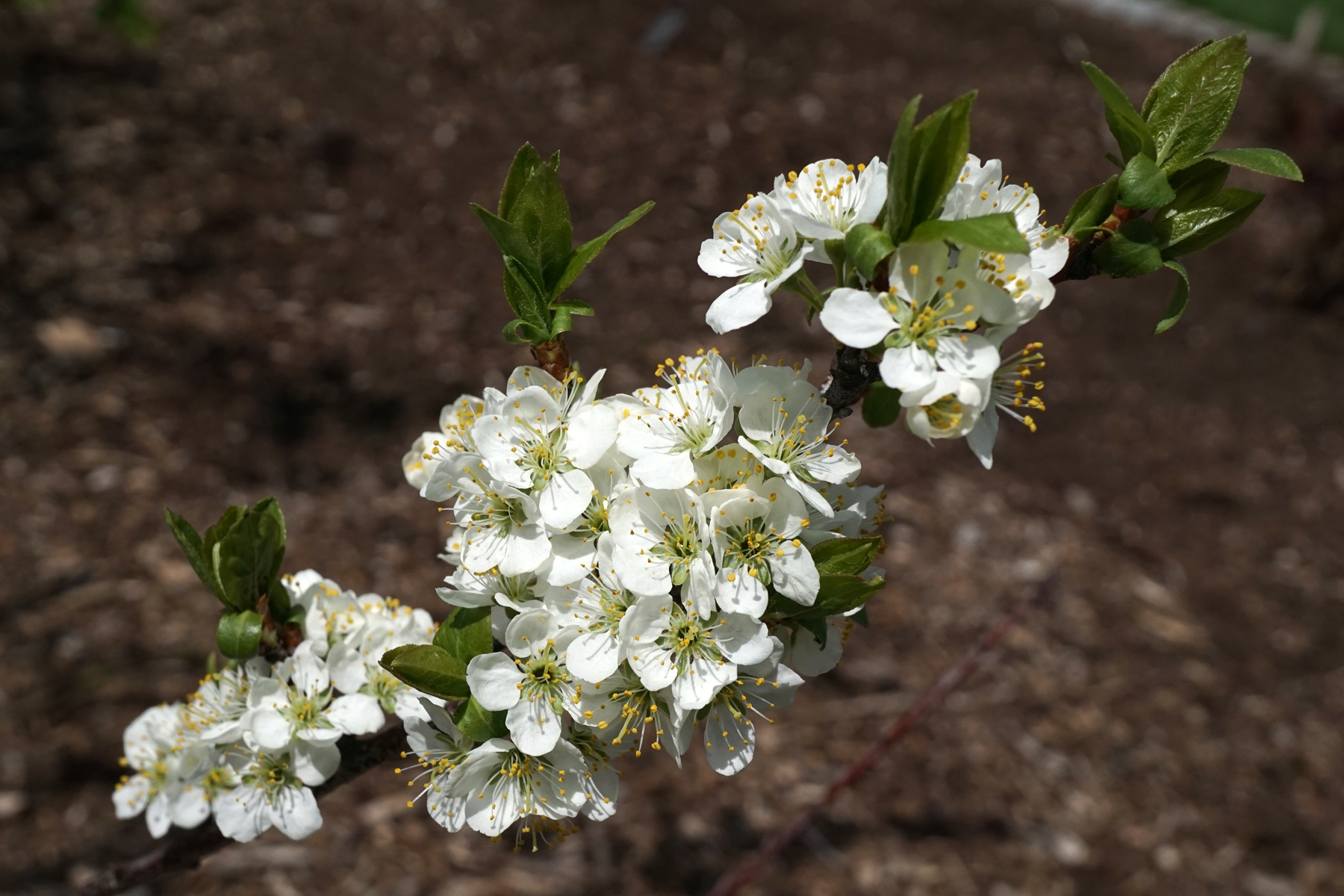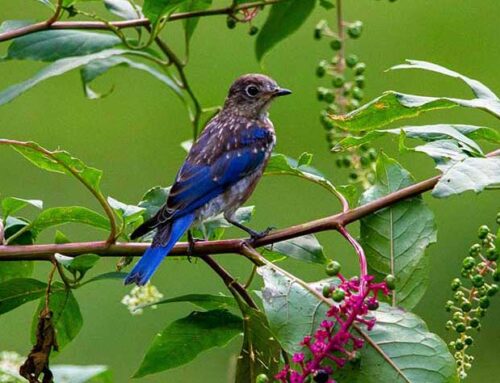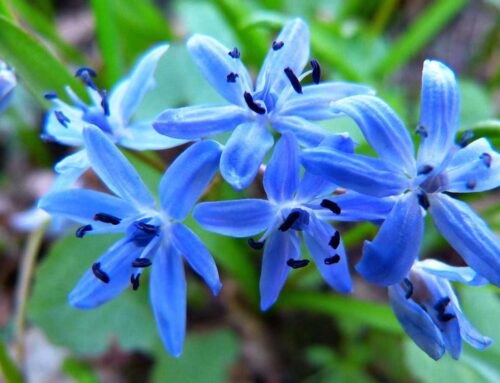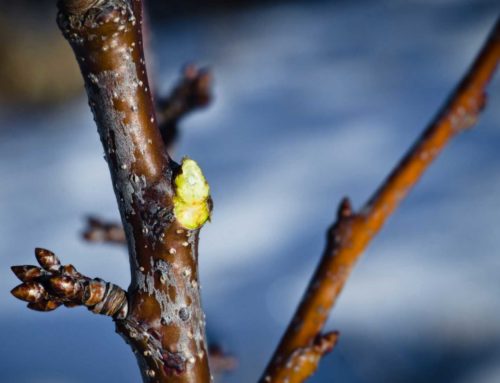Beach Plum | Prunus maritima
Sustainable Landscaping with Native Plants
A drought tolerant plant, Beach plums thrive in dry and sandy soils. It is indigenous to the Mid-Atlantic coastal region occurring as far north as the Canadian Maritime Provinces and south to northern Virginia. In the wild they grow in the extremely well drained sandy soils of the coast, often right in the sand dunes. Plant in a sunny, sandy site as a shrub border, wild hedge, foundation planting, or ornamental. Beach Plum supports over 400 species of lepidoptera, and is beneficial for bees and birds as well. Planted alongside other edible species such as Bearberry, lowbush blueberry, and Eastern Prickly Pear, you can share the delicious fruits with the local wildlife with a lovely garden.
Beach Plum provides showy displays of white flowers in spring. The gnarly branches of beach plum are covered with showy white-petaled flowers in early spring that turn pink once they have been pollinated by native bees and other insects. In late summer to early fall, blue-purple plums cover the plant, but not for long, as they are gathered by birds and small animals who don’t mind the tartness.
Prunus Maritima attain an average height and width of 3 to 6 foot thereby having a rounded and dense growth habit. They make a great garden and low maintenance landscape plant and are extremely sought out by pollinators, birds, bees and wildlife for their fruit.
At Lincoln Landscaping cultivating the environment is our life and livelihood. It is our number one goal to help our clients create and maintain beautiful landscapes while reducing the impact on the environment. Whether you are interested in a pollinator landscape garden design and build or other landscaping or property management project; we can create for you an environmentally friendly, organic and beautiful property. We create eco-systems.
Yua Tah Hey
(A traditional greeting in Navajo, often spelled yá át tééh, which translates generally as “it is good.”)
Lincoln Landscaping “The Natural Choice”
Mike Kolenut President & CEO
https://lincolnlandscapinginc.com
(201) 848-9699

